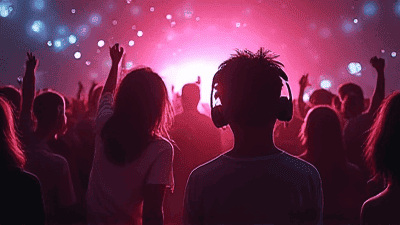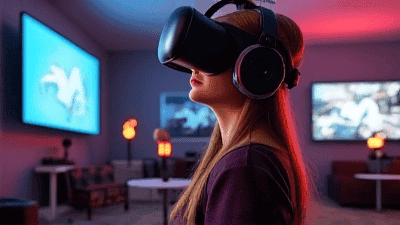
The music industry has undergone significant changes in recent years, with the rise of artificial intelligence (AI) generated music being one of the most notable developments. AI generated music is music that is created using algorithms and machine learning techniques, rather than by human musicians.
The Rise of AI Generated Music
Early Beginnings
AI generated music has been around for several decades, but it wasn't until the 2010s that it began to gain widespread attention. One of the earliest examples of AI generated music was the album "The Future Sound of London" by The Future Sound of London, which was released in 1991. This album was created using a combination of human and machine-generated music.
The Benefits of AI Generated Music
AI generated music has several benefits, including the ability to create music quickly and efficiently, the ability to create music that is tailored to a specific audience or genre, and the ability to create music that is more complex and nuanced than human-generated music.
One of the most significant benefits of AI generated music is its ability to create music quickly and efficiently. AI algorithms can generate music in a matter of seconds, whereas human musicians may take weeks or even months to create a single song.
Another benefit of AI generated music is its ability to create music that is tailored to a specific audience or genre. AI algorithms can analyze data on music preferences and create music that is tailored to a specific audience or genre.
AI generated music also has the ability to create music that is more complex and nuanced than human-generated music. AI algorithms can create music that has multiple layers and complexities, which can be difficult for human musicians to achieve.
The Challenges of AI Generated Music
While AI generated music has several benefits, it also presents several challenges. One of the most significant challenges is the issue of creativity and originality. AI generated music may lack the creativity and originality of human-generated music, which can make it difficult for listeners to distinguish between the two.
Another challenge of AI generated music is the issue of ownership and copyright. AI generated music may raise questions about ownership and copyright, as it is unclear who owns the rights to the music.
AI generated music also raises questions about the role of human musicians in the music industry. With AI generated music becoming increasingly popular, it is unclear what role human musicians will play in the industry in the future.
The Impact of AI Generated Music on the Music Industry

Changes in the Music Industry
AI generated music is having a significant impact on the music industry, including changes in the way music is created, marketed, and consumed.
One of the most significant changes in the music industry is the way music is created. AI generated music is changing the way music is created, with AI algorithms taking on a more prominent role in the creative process.
Another change in the music industry is the way music is marketed. AI generated music is changing the way music is marketed, with AI algorithms being used to analyze data on music preferences and create targeted marketing campaigns.
AI generated music is also changing the way music is consumed. With AI generated music becoming increasingly popular, listeners are no longer limited to listening to music created by human musicians.
The Rise of AI Generated Music in the Music Industry
AI generated music is becoming increasingly popular in the music industry, with many artists and labels incorporating AI generated music into their work.
One of the most notable examples of AI generated music in the music industry is the album "AI for Music" by the band "The Future Sound of London". This album was created using a combination of human and machine-generated music, and features a unique blend of electronic and acoustic sounds.
Another example of AI generated music in the music industry is the album "AI for Music" by the artist "Grimes". This album was created using a combination of human and machine-generated music, and features a unique blend of electronic and acoustic sounds.
The Future of AI Generated Music in the Music Industry
The future of AI generated music in the music industry is uncertain, but it is clear that AI generated music will continue to play a significant role in the industry.
One of the most significant developments in the future of AI generated music is the use of AI algorithms to create music that is tailored to a specific audience or genre. This will allow artists and labels to create music that is more targeted and effective, and will give listeners more options for music that they enjoy.
Another development in the future of AI generated music is the use of AI algorithms to create music that is more complex and nuanced than human-generated music. This will allow artists and labels to create music that is more sophisticated and engaging, and will give listeners more options for music that they enjoy.
Conclusion: The Impact of AI Generated Music on the Music Industry
AI generated music is changing the music industry in significant ways, including changes in the way music is created, marketed, and consumed. While AI generated music presents several challenges, including the issue of creativity and originality, it also has several benefits, including the ability to create music quickly and efficiently, and the ability to create music that is tailored to a specific audience or genre.
As AI generated music continues to evolve and improve, it is clear that it will play a significant role in the music industry in the future. Whether you are an artist, a label, or a listener, AI generated music is an exciting development that is changing the face of the music industry.








